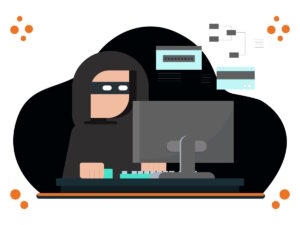The National Cyber Security Centre (NCSC) has listed the top six government spoofing scams. These techniques have been taken down from the internet in 2022 and recommended that the public be on the alert for cybercrime over the next year.
Phishing emails and messages from online criminals posing as well-known government organisations like the NHS, HMRC, and Ofgem were among the scams exposed by the National Cyber Security Centre (NCSC), a division of GCHQ. After receiving 6.4 million reports to the NCSC in 2022, the public is recommended to keep reporting suspicious emails.
Phishing remained the most serious threat to people and small companies. With such attacks often resulting in users clicking a malicious link, downloading malware or redirecting them to a fake website.
Cybercriminals often try to use the latest news to their benefit to make their phishing attacks seem more authentic. Scammers continued to use the coronavirus pandemic as a reason to execute PCR test frauds in 2022, as seen by Ofgem energy bill help scams and HMRC tax refund scams. Scammers also continued to take advantage of the growing cost of living crisis.
Suspicious Email Reporting Service (SERS) has received reports of the following top UK Government organisation attacks, all of which have been taken down:
- TV Licensing
- DVLA
- Ofgem
- Gov.uk
- National Health Service (NHS)
- HM Revenue & Customs
NCSC Recommendations
The NCSC urges people to report suspected emails to its Suspicious Email Reporting Service at report@phishing.gov.uk and suspicious texts to (UK) 7726.
In 2022, SERS received 6.4 million reports, and 67,400 fraudulent URLs were removed as a response. With 198,500 takedowns, there have been a total of 15.7 million reports to SERS since its start in 2020.
In order to secure their online accounts from cybercriminals trying to steal sensitive information and personal information, the NCSC is also advising users to follow its Cyber Aware advise in the January 2023 sales.
According to Sarah Lyons, deputy director of the NCSC for economy and society resilience:
We know cyber criminals try to exploit trends and current affairs to make their scams seem convincing and sadly our latest data shows 2022 was no exception. By shining a light on these scams we want to help people more easily spot the common tricks fraudsters use. There is much more advice on the NCSC’s website about spotting suspicious messages, along with our Cyber Aware guidance to help people protect their devices.
The NCSC also helps customers to verify businesses before they buy and utilise secure payment services to stay aware of the criminal threat in 2023.
With the proper training, you can lower the danger of being a victim of cybercrime even though your staff could be a security concern. It’s important to assess your company, identify any weak areas, and let everyone on staff know what the best procedures are.
Help your colleagues keep a security-first mindset and boost your human firewall by starting your Phishing Tackle security awareness training today with our two-week free trial.








